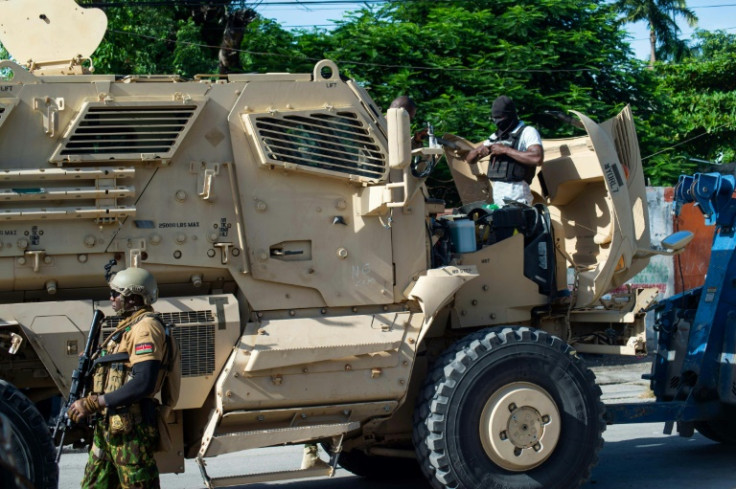
Nearly 20 Kenyan police officers serving in Haiti on a U.N.-backed anti-gang mission have reportedly submitted letters of resignation in recent months, citing delayed pay and inadequate working conditions. The officers, part of the Multinational Security Support (MSS) mission, told Reuters that they had not received any response to their resignation letters, though they continue to serve on the mission.
The MSS mission, led by Kenyan officers, quickly rejected the report, claiming that all personnel had been paid in full, including monthly allowances. However, three officers, speaking anonymously to the media, contradicted this, saying they hadn't been paid since September.
About 400 Kenyan officers have been deployed to lead the MSS mission in Haiti, which seeks to support efforts against the country's worsening gang violence. The mission was expected to be staffed by around 2,500 personnel from multiple countries, but has struggled with funding and staffing shortages. Only a few officers from other nations have arrived, and Kenya's promise to send an additional 600 officers in October has not materialized. Those there are struggling to fight gangs, which in most cases are better armed.
The resignation letters started to arrive in October after officers attempted to verbally resign and were told to submit formal requests. At least 20 officers, including five senior staff members, have since resigned, according to Reuters.
Gang violence in Haiti has intensified over the past two years, claiming thousands of lives. Armed groups recently expanded into areas of Port-au-Prince that had previously remained outside their control.
The mission's morale has been low since its inception. Several officers cited delays in pay, lack of equipment, and manpower shortages, with the U.S. government providing most of the funding. U.S. officials have advocated for converting the MSS into a full U.N. peacekeeping force, but opposition from China and Russia has delayed this proposal.
Haiti's political instability has also deepened recently, with the national transitional council ousting the prime minister and naming a new leader, the businessman Didier Fils-Aime, in a move that further complicates the security landscape.
Haitian authorities continue to struggle with ever-escalating violence, which has forced 50,000 people to flee their homes in the past two weeks alone. Gang violence in Haiti has paralyzed the country. Port-au-Prince's airport is closed and roads to the capital are practically impossible to transit through.
Haiti's children are at the heart of a worsening humanitarian crisis marked by hunger, displacement, and escalating violence that includes child soldiers, according to another report. Over 1.5 million children have lost access to education, and many face growing risks of exploitation, including recruitment into armed gangs, UNICEF reported during a U.N. special meeting.
Gang recruitment of minors has soared by 70% in the past year, with children now making between 30% and 50% of gang members, according to the U.N.'s leading child welfare agency, UNICEF. Reports of sexual violence against children have risen by 1,000%, further underscoring the dire situation.
© 2025 Latin Times. All rights reserved. Do not reproduce without permission.





